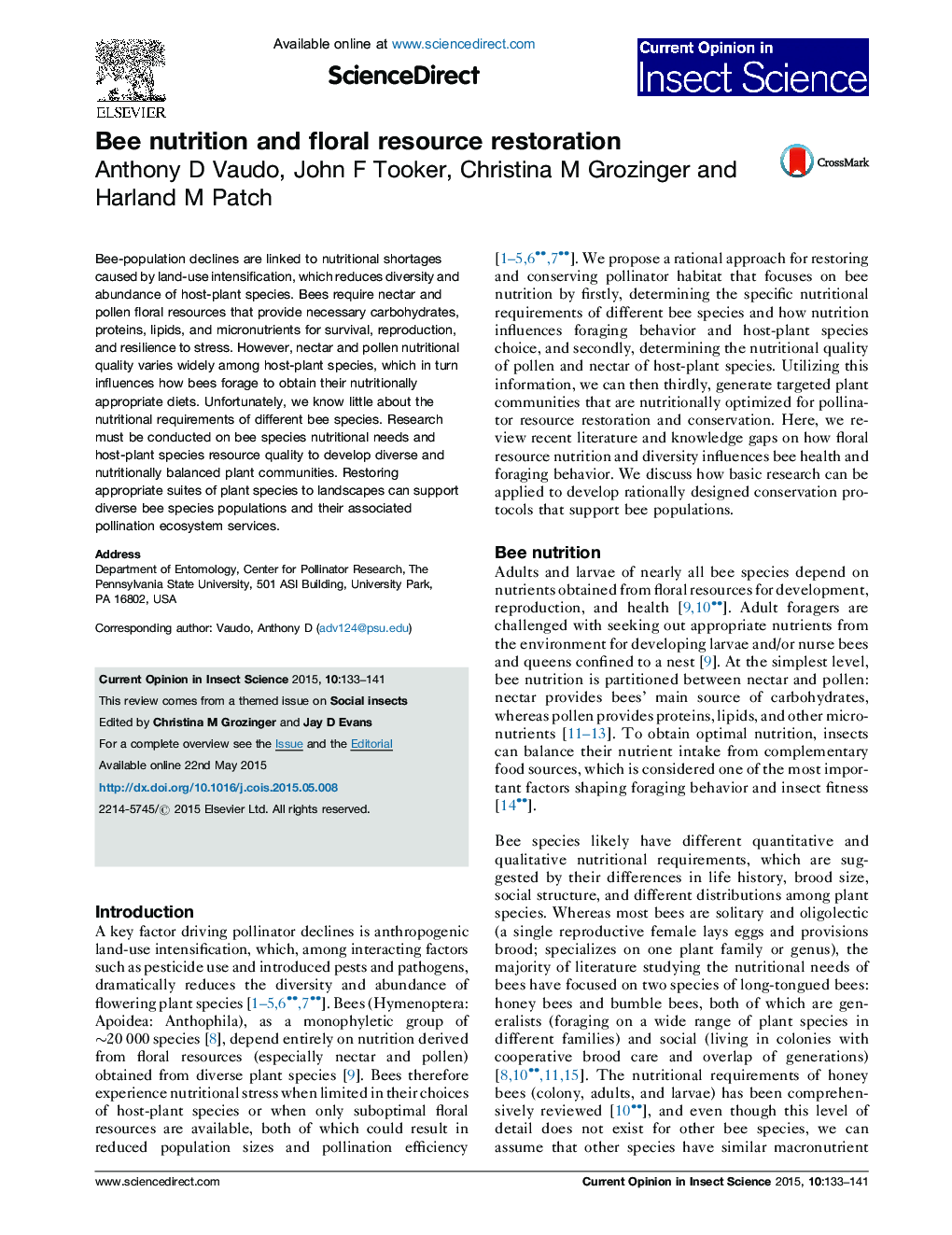| Article ID | Journal | Published Year | Pages | File Type |
|---|---|---|---|---|
| 6374126 | Current Opinion in Insect Science | 2015 | 9 Pages |
â¢Bees' specific nutritional requirements are partitioned between pollen and nectar.â¢Nectar and pollen provide carbohydrates, protein, lipids, and micronutrients.â¢Bee foraging behavior is influenced by nectar and pollen quality and quantity.â¢Diverse diets can improve bee health, reproduction, and resilience to stress.â¢Nutritionally balanced conservation plantings can support diverse bee populations.
Bee-population declines are linked to nutritional shortages caused by land-use intensification, which reduces diversity and abundance of host-plant species. Bees require nectar and pollen floral resources that provide necessary carbohydrates, proteins, lipids, and micronutrients for survival, reproduction, and resilience to stress. However, nectar and pollen nutritional quality varies widely among host-plant species, which in turn influences how bees forage to obtain their nutritionally appropriate diets. Unfortunately, we know little about the nutritional requirements of different bee species. Research must be conducted on bee species nutritional needs and host-plant species resource quality to develop diverse and nutritionally balanced plant communities. Restoring appropriate suites of plant species to landscapes can support diverse bee species populations and their associated pollination ecosystem services.
